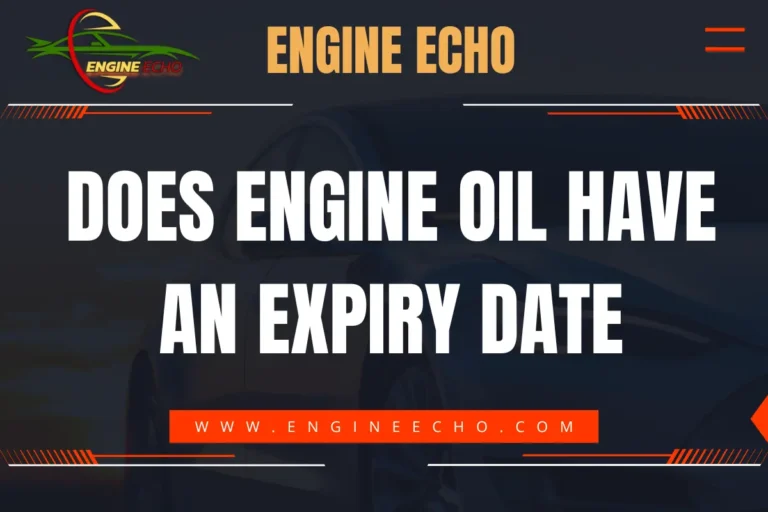How to Choose the Right Engine Rebuilder

Key Takeaways
- Certifications and Experience Matter: Always go with an engine rebuilder who has proper certifications like ASE and solid experience working on your specific type of engine.
- Reputation is Key: Do your homework by checking out reviews, ratings, and asking around for referrals to find a trustworthy rebuilder.
- Understand the Costs and Warranty: Make sure you get a detailed quote that clearly explains what’s included in the price, and always check the warranty terms.
Introduction
I’ve always believed in getting the most out of every vehicle, which is why engine rebuilding isn’t just a way to save money—it’s a way to breathe new life into your car. Whether you’re dealing with a tired, worn-out engine or you’re looking to restore a classic, the quality of the rebuild can make all the difference. I’ve put together this guide to help you pick the right engine rebuilder, so you can avoid the headaches and make a choice that really works for you.
Understanding Engine Rebuilding
What Is Engine Rebuilding?
Engine rebuilding basically means taking your engine apart, cleaning it up, swapping out any worn pieces, and putting it all back together so it runs like new—or even better. Unlike a quick fix, rebuilding dives into the heart of your engine to tackle the root problems, giving it a fresh start.
Signs Your Engine Needs Rebuilding
You might be wondering if your engine is ready for a rebuild. Here are some telltale signs:
- Knocking Sounds: If you’re hearing persistent knocking or tapping, it’s a sign that something inside your engine is wearing out.
- Excessive Oil Consumption: I remember when my trusty old truck started guzzling oil like there was no tomorrow. That was my first clue that a rebuild was on the horizon.
- Loss of Power: If your engine suddenly feels weaker and just isn’t performing like it used to, it might be wearing out inside.
- Excessive Smoke: Seeing blue or black smoke from your exhaust? That’s a red flag for serious engine trouble.
Benefits of Engine Rebuilding
Rebuilding an engine comes with some great perks:
- Cost Savings: Rebuilding can be a lot cheaper than buying a new or used engine, especially if you’ve got a high-performance or rare engine.
- Environmental Benefits: It’s also an eco-friendly choice—rebuilding conserves resources and cuts down on waste compared to buying new.
Factors to Consider When Choosing an Engine Rebuilder
Certification and Credentials
When you’re choosing an engine rebuilder, certifications are a must. Make sure the rebuilder has the right credentials, like ASE certification. It’s basically a sign that they know their stuff and meet industry standards. I wouldn’t hand over my engine to someone without them, and neither should you.
Experience and Expertise
Experience matters—a lot. The longer a rebuilder has been in business, the more likely they are to have tackled a wide range of engine problems. Also, check if they specialize in your specific engine type or brand. This can make a big difference, especially if you’ve got a unique or high-performance engine.
Reputation and Reviews
Reputation says a lot about a rebuilder. Check out online reviews and ratings, and don’t be shy about asking friends, family, or your trusted mechanic for referrals. A rebuilder with a solid reputation will have plenty of positive feedback and a track record of successful rebuilds.
Warranty and Guarantees
You’ll want a warranty that covers parts and labor, ideally for one to three years. Trust me, if something goes wrong, you’ll be glad you asked about this. Be cautious of rebuilders who offer no warranty or one that’s very short—this could be a sign they’re not confident in their work.
Equipment and Technology
Modern engine rebuilding isn’t just about skill—it’s also about having the right tools. Ask about the technology they use. Rebuilders who invest in the latest machinery and tools are usually the ones delivering top-notch results.
Quality of Parts Used
The quality of the parts used in the rebuild will directly affect how well your engine runs. Ask if they use OEM (Original Equipment Manufacturer) parts or aftermarket options. While OEM parts are generally the go-to for their fit and quality, high-quality aftermarket parts can also be a solid choice, especially for custom builds.
Pricing and Cost Transparency
While cost isn’t everything, it’s important to get a detailed quote. This should clearly outline the cost of parts, labor, and any extras. Trust me, when it comes to pricing, transparency is key. If a rebuilder can’t give you a clear breakdown of costs, it’s time to walk away.
Questions to Ask Potential Engine Rebuilders
Experience with Your Specific Engine Model
Not all engines are the same, and it’s crucial to ensure that the rebuilder has experience working with your specific engine model. Ask about previous projects similar to yours and request examples of their work. When I was looking for someone to rebuild my engine, I made sure to ask about their experience with my specific model. The last thing I wanted was someone learning on the job with my engine.
Turnaround Time
How long will it take to get your engine back? It depends on how complicated the job is and how easy it is to find the right parts. Be sure to ask for an estimated turnaround time and understand what could cause delays.
Follow-Up and Support
What happens after the rebuild? Post-rebuild support is key for dealing with any issues that might pop up. Ask if they offer follow-up services, like adjustments or tune-ups, and make sure they’re easy to reach if something goes wrong.
Case Studies: Successful Engine Rebuilds
Case Study 1: Rebuilding a Classic Car Engine
A customer brought in a classic 1965 Ford Mustang with a V8 engine that had seen better days. The rebuilder completely disassembled the engine, replaced worn-out components with high-quality OEM parts, and reassembled it to factory specifications. Watching my ’65 Mustang roar back to life after a rebuild was like seeing an old friend come home—it was worth every minute and penny spent.
Case Study 2: Modern Engine Rebuild with Advanced Technology
A 2015 BMW M3 owner experienced significant engine issues due to a failed turbocharger. The rebuilder used cutting-edge diagnostic tools to pinpoint the problem, replaced the damaged parts, and used advanced balancing and tuning techniques to optimize performance. The result? Better-than-factory performance that had the owner grinning from ear to ear.
Common Mistakes to Avoid When Choosing an Engine Rebuilder
Overlooking Certifications
Choosing a rebuilder without proper certifications can lead to subpar work and potential engine failure. Always verify credentials before making your decision.
Focusing Solely on Price
While it’s tempting to go for the cheapest option, it’s often a mistake. Cheaper rebuilds may use inferior parts or shortcuts, leading to bigger problems down the road. I’ve seen too many people fall into the trap of choosing the cheapest option, only to end up with more headaches. Don’t make that mistake. Quality should always come first.
Not Asking for a Written Estimate
A written estimate gives you clarity and protects you from unexpected costs. Always get a detailed written estimate before agreeing to any work.
The Future of Engine Rebuilding
Emerging Trends and Technologies
The car world is changing fast, and engine rebuilding is keeping up. With more hybrids and electrics on the road, rebuilders are learning new tricks and technologies to stay ahead. It’s exciting to see how the industry is evolving, and I’m looking forward to seeing where it goes next.
Sustainability in Engine Rebuilding
Sustainability is playing a bigger role in engine rebuilding, with more rebuilders adopting eco-friendly practices. This includes recycling engine components, using less harmful chemicals, and improving fuel efficiency through rebuilds.
Conclusion
Picking the right engine rebuilder might seem tricky, but if you focus on things like experience, reputation, and the quality of parts, you’ll make a choice that keeps your car running smoothly for years. I’m writing this because I’ve been there—I know how overwhelming it can be to choose the right rebuilder. But with the right approach, you can make a choice that keeps your engine—and your vehicle—running smoothly for years to come.
Frequently Asked Questions (FAQs)
What should I look for in a warranty from an engine rebuilder? Look for a warranty that covers both parts and labor for at least one year. It should also be clear about what is and isn’t covered.
How long should a rebuilt engine last? A properly rebuilt engine can last as long as a new engine, often providing 100,000 miles or more of reliable service.
Can all types of engines be rebuilt? Most types of engines can be rebuilt, but some may be more challenging due to the availability of parts or the complexity of the engine design. Always consult with your rebuilder about the specific engine you have.
Thanks for checking out this article on EngineEcho.com! Hope you found this article: "How to Choose the Right Engine Rebuilder" helpful! If you liked it and want to dive into more car engine topics, head over to our homepage. There's always something new to discover in the world of engines. Enjoy your reading journey!
Check out our previous article: Everything You Need to Know About Engine Rebuilds






